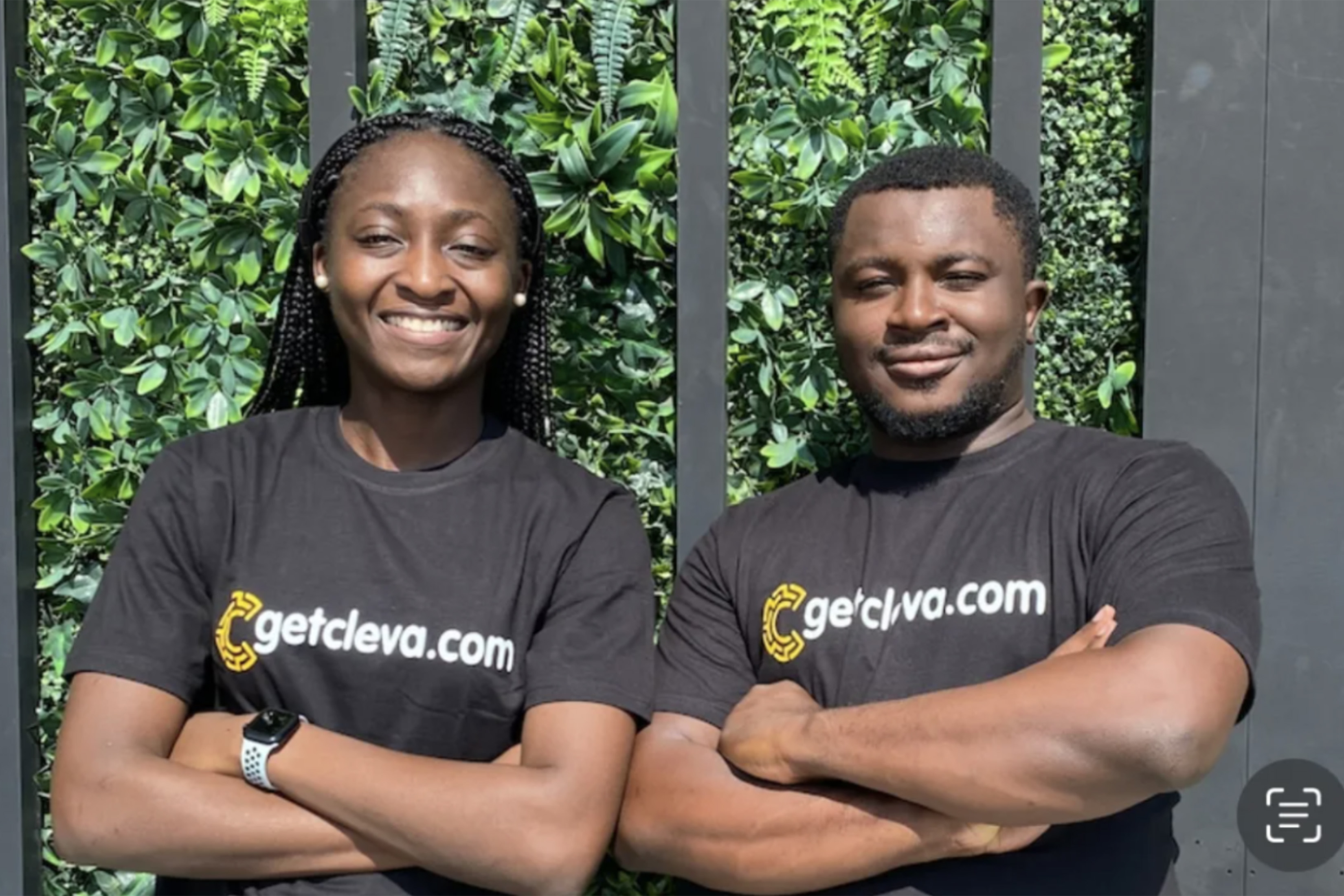Banking on a Path to African Prosperity
-
-
Slice of MIT
Filed Under
Recommended

Financial hardship struck Philip Adama Abel ’15 early in life and nearly derailed his dreams of building a prosperous future. Today, he is working to ensure economic security for others in his native Nigeria through his fintech startup, Cleva.
The oldest of five children, Abel excelled in primary school. But his father died when Abel was 10, forcing the boy to quit school and go to work as a street vendor, selling food his mother made. “Dropping out was very, very disappointing,” he says. “We had to pretty much work with mom to put food on the table.”
Fortunately, he only missed one term because the head of his school discovered his plight and found a way to help out. Abel went on to earn a scholarship to a private secondary school—“free books, uniforms, free everything”—and that led to his first trip to the United States.
“It was beyond eye-opening,” Abel says. Chosen for a short exchange program, Abel traveled to Austin, Texas, and was impressed by the diverse students he met. “It really motivated me and expanded my view of what was possible,” he says.
After a summer in the States, Abel returned to Nigeria to finish high school, gaining valuable skills in math, physics, and chemistry. He did well on his SATs and earned a full scholarship from MIT.
First Time Coding
Abel expected to major in aeronautics and astronautics until he took his first class in the programming language Python at MIT. He had never coded anything before that, but he quickly chose to major in computer science. “What was clear to me at the time is that [as a computer scientist,] I didn’t need a lot of resources to build great things and be productive,” he says. “That really appealed to me.”
After graduation, Abel spent a few years working as a software engineer at Akamai, then in 2019 earned a master’s degree from the Georgia Institute of Technology in computer science, AI, and computing systems. He went on to build software for Amazon Web Services and later cloud communications company Twilio before launching Cleva last year with cofounder Tolu Alabi. Abel, who is Cleva’s chief technology officer, describes the company as a banking platform that enables individuals and businesses to use US dollars for financial transactions.
Currency Crisis
This service is needed, he explains, because Nigeria’s currency is so unstable; in just the last year, it has experienced a whopping 230 percent loss of value. “Companies that trade internationally struggle a lot with this,” he explains.
To understand what this currency crisis might mean for workers, imagine receiving a check for services rendered only to find you’d gotten only half what you expected—not because the figure on the check is wrong, but because the money itself is worth less than when you sent the bill, so you have less purchasing power. “It’s a very big problem,” Abel notes.
Cleva provides “a seamless solution” in collaboration with a US bank that enables the US dollar transactions, Abel says. Pointing out that the dollar is preferred by businesses worldwide as a currency that holds its value, he adds, “We are making it easier for businesses and remote workers to be paid.” In just a little over a year, Cleva has attracted almost 200,000 customers, and the business is already planning to expand into two other countries in Africa.
Would Cleva have been helpful to Abel when he was a boy struggling to help support his family? “Absolutely!” he says, explaining that he could have earned money tutoring math online (as well as locally) and used Cleva for payments. “I would have jumped on that opportunity.”
Philip Abel Adama is featured in the documentary Brief Tender Light, which follows the journey of five MIT students who ventured from Ghana, Nigeria, Rwanda, Tanzania, and Zimbabwe to study in the United States with the goal of creating meaningful change back home. The film is streaming free on PBS through November 30, 2024.
Photo of Tolu Alabi, left, and Philip Adama Abel courtesy of Cleva







